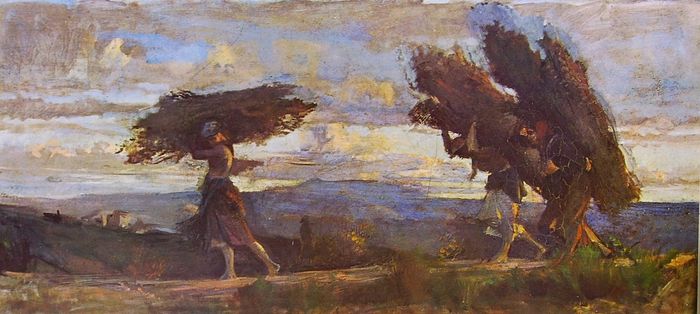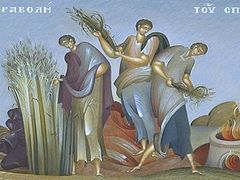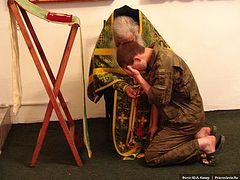In Luke 8:5-15, the Lord Jesus Christ tells us the following parable:
“A sower went out to sow his seed; and as he sowed, some fell on the path and was trampled on, and the birds of the air ate it up. Some fell on the rock; and as it grew up, it withered for lack of moisture. Some fell among thorns, and the thorns grew with it and choked it. Some fell into good soil, and when it grew, it produced a hundredfold.” As he said this, he called out, “Let anyone with ears to hear listen!” Then his disciples asked him what this parable meant. He said, “To you it has been given to know the secrets of the kingdom of God; but to others I speak in parables, so that ‘looking they may not perceive, and listening they may not understand.’
“Now the parable is this: The seed is the word of God. The ones on the path are those who have heard; then the devil comes and takes away the word from their hearts, so that they may not believe and be saved. The ones on the rock are those who, when they hear the word, receive it with joy. But these have no root; they believe only for a while and in a time of testing fall away. As for what fell among the thorns, these are the ones who hear; but as they go on their way, they are choked by the cares and riches and pleasures of life, and their fruit does not mature. But as for that in the good soil, these are the ones who, when they hear the word, hold it fast in an honest and good heart, and bear fruit with patient endurance.”
Jesus gives the parable an allegorical interpretation. Christians through the centuries have followed Jesus both in using parables to teach Gospel lessons and also in interpreting parables allegorically. Abba Arsenius tells the following story and then following the example of Jesus provided an interpretation of the parable:
“… while an elder was residing in his cell, a voice came to him that said: ‘Come, I will show you the works of folk.’ [The elder] got up and went out; [the voice] brought him to a place and showed him a burnt-faced-one cutting wood and making a great bundle. He attempted to carry it but could not. But instead of taking away from it, he cut some more wood then added it to the bundle – and he was doing this for a long time.
When he had gone a little further he also showed him a person standing in a lake, drawing water from it and pouring it into a receptacle with holes in it: the same water was running out into the lake.
He spoke to him again: ‘Come on, I will show you something else;’ then he saw a temple and two persons on horseback carrying a piece of wood crossways, one beside the other. They wanted to enter through the the gate but could not because the piece of wood was crossways. One would not humble himself to carry the wood lengthwise behind the other; for that reason they remained outside the gate.
‘These are they,’ he said, ‘who bear the yoke of righteousness with pride and did not humble themselves to put their house in order and to travel the humble way of Christ; so they remain outside the Kingdom of God.
The one cutting wood is a man beset by many sins; instead of repenting, he adds other transgressions on top of his sins.
And the one drawing water is a person who does good works but, because he has an evil mixture in him, for this he lost his good deeds too. So every one must keep a watch over his works, lest he toil in vain.” (Give Me a Word: The Alphabetical Sayings of the Desert Fathers, pp 48-49)




